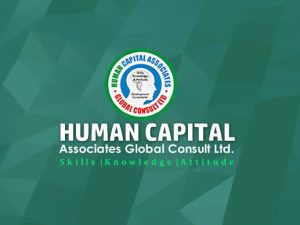Effective Budgeting & Operational Cost Control
Workshop on Effective Budgeting & Operational Cost Control
May 20 – 24, 2024, 1st Run: Lagos & Port Harcourt
November 18 – 22, 2024, 2nd Run: Lagos & Abuja
For Tutor -Led Class: 9am – 4:30pm
Workshop fee: N250, 000 per Participant
For online: Delivery via Zoom
Online course fee: N200, 000 per Participant
Available for In-plant Training
Program Overview:
The effective management of budgets and operational cost is a key aspect in leading and managing organizations. Budgeting, as well as tracking, controlling and reducing cost represent essential activities to be performed and monitored as strategies get executed.
To ensure effective and prudent financial management in the organization, there is the need to prepare a realistic budget and ensure compliance with the approved budget plan. Furthermore, operational costs need to be monitored and controlled so that as to ensure financial discipline. This training program will help participants appreciate the concepts and methodology around cost management and budgeting.
FOR WHOM:
This program is designed for senior managers who manage budgets, managers who are currently managing projects and/or contracts. Senior managers who control cost and budgeting for their departments or organizations will also find this course extremely beneficial.
LEARNING OBJECTIVES:
At the end of the course, participants will be able to:
- apply the essential concepts of accounting, budgets and finance;
- apply the use of unit cost measurements in performance-based budgeting;
- maintain strategic cost control;
- explain the importance of reducing unnecessary costs;
- apply the costs estimates to produce those outputs and calculate a cost per unit of output;
- identify appropriate outputs for an organizational unit or programme component;
- locate guidance on budgeting for capital assets, and integrate performance budgeting into their organization’s budget formulation process; and
- use best practices to create written budget justifications;
Course Outline:
Day 1: Understanding the Common Financial Language
- Key role of budgeting and cost control in contemporary organizations
- The 21st century business imperative: delivering value added
- Towards a cross-functional process-view of the organization
- Financial vs. Managerial accounting (decision making)
- Understand your processes: integrating financial and non-financial aspects
- Identify the key processes/projects for your own organization
Day 2: Contributing effectively to Strategic Planning
- Budgeting and Cost analysis
- Cost concepts and terminology
- Different costs for different purposes
- Fixed Vs Variable costs: the Cost-Volume-Profit analysis model
- Contribution Margin analysis
- Manufacturing vs. non-manufacturing costs
- Period Vs. Product costs: inventory evaluation and control
Day 3: Linking Budgeting and Forecasting into the Business’ Strategy
- Traditional vs. Advanced Techniques in Cost-control
- Under-costing and over-costing: the consequences for profitability
- How to refine a costing system?
- Indirect (OH) Vs. Direct costs: Traditional Cost Allocations Systems Vs. Activity-Based Costing (ABC)
- Cost hierarchy & Cost drivers
- Linking resources, activities and management
- Introducing Activity-Based Budgeting (ABB) and Management (ABM)
Day 4: Preparing Rolling Forecasts
- Role of forecasts and the link to strategy
- Comparing and contrasting budgets and forecasts
- Identifying key business drivers
- The rolling forecast process
- Forecasting methods
- Applying ‘best practice’ risk management and control
- Role of risk management in corporate governance
- Finance’ role in supporting risk management
- Cost / Effective risk management in Finance’ own
processes
Day 5: Cutting costs and improving effectiveness
- Role of cost management in the business strategy
- Cost management and motivation
- Embedding cost control in the business
- Role of Finance in cost control
- Beyond the Budgets: Balanced scorecards and Six-sigma
- Broadening performance measurement systems
- The key role of customer satisfaction and business process
re-engineering
- Beyond budgeting: integrating financial and
non-financial issues
- Introducing the Balanced Scorecard
- Introducing the Strategy maps
Training Methodology
Methodology: Lectures, discussions, exercises, case studies, audio-visual aids will be used to reinforce these teaching/learning methods.
Related Courses





